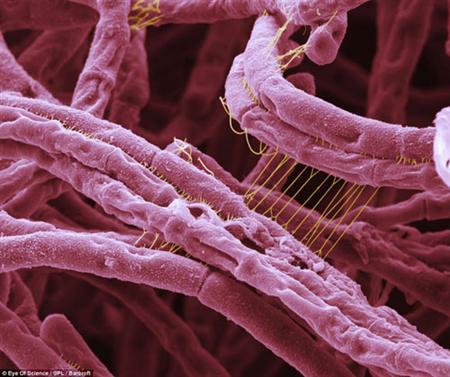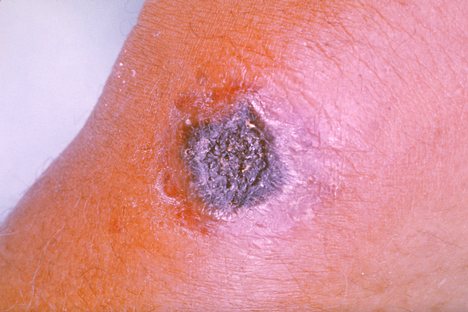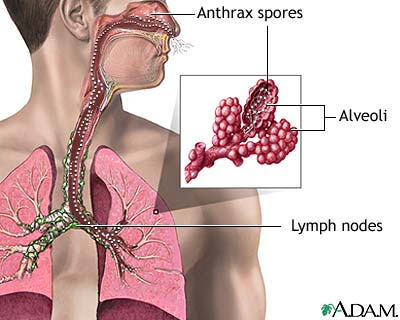Anthrax: Difference between revisions
From MicrobeWiki, the student-edited microbiology resource
| Line 44: | Line 44: | ||
<br> | <br> | ||
2. http://www.ncbi.nlm.nih.gov/pmc/articles/PMC1769905/ | 2. http://www.ncbi.nlm.nih.gov/pmc/articles/PMC1769905/ | ||
<br> | |||
3. http://www.ncbi.nlm.nih.gov/pmc/articles/PMC2784286/ | |||
Revision as of 13:22, 21 July 2013

Bacillus antracis [1]
Etiology/Bacteriology
Taxonomy
Domain: Bacteria
Phylum: Firmicutes
Class: Bacilli
Order: Bacillales
Family: Bacillaceae
Genus: Bacillus
Species: anthracis
Description
Bacillus anthracis is a Gram-positive aerobic spore-forming bacterium. B. anthracis derived its name from the Greek word for coal because this pathogen can cause black lesions on the victim's skin. The bacterium is non-motile and non-hemolytic on blood agar.
Pathogenesis
Transmission
Infectious dose, incubation, and colonization
Epidemiology
Virulence factors
Clinical features
Cutaneous

Anthrax sore [2]
Inhalation

Inhalation of anthrax [3]
Gastrointestinal
Diagnosis
Treatment
Prevention
Host Immune Response
References
1. Conway, Tyrrell. “Genus conway”. “Microbe Wiki” 2013. Volume 1. p. 1-2.
2. http://www.ncbi.nlm.nih.gov/pmc/articles/PMC1769905/
3. http://www.ncbi.nlm.nih.gov/pmc/articles/PMC2784286/
